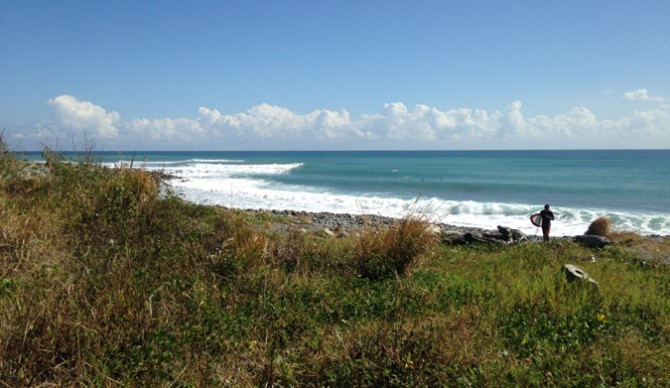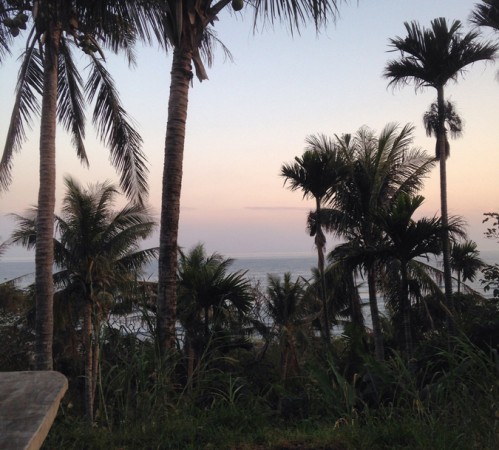Looking back on my time in Taiwan, I am reminded of the friendliness. The hospitality that poured out of the locals was astounding. The waves were enjoyable, with a mix of beach breaks, rocky left points, A-frame river mouths, and reef breaks. It can’t be compared to Indonesia, but for the surfer looking for less-crowded intermediate waves and a bigger culture shock, Taiwan is for you.
Taiwan is still a place where you can leave keys in the scooter ignition, valuables unattended, and know that after a 3-hour surf session everything will be untouched. People go out of their way to help a Wàiguó rén (foreigner). It was on my first trip east that I discovered this.
Information is sparse for someone with no knowledge of Chinese characters. After fruitless hours of research, it became apparent I had one option to take me from Chiayi in the west to Taitung in the east — blindly hopping on a train. Trains have a tendency of selling out of seats rapidly and purchasing tickets in advance is a must. Unaware of this, I strolled into the train station, surfboard bag in tow, and was administered a ticket with “No Seat” written in both Chinese and English, along with a fair share of questionable looks. Wedged into the back of car 12 on the Tze-Chiang Limited Express amongst hordes of university students returning home, I prepared for the journey.
I soon found out the four-hour chess match of finding a comfortable body position was just the beginning of my discomfort. Upon arrival, a quick trip to the bus station revealed I missed my last opportunity to travel the remaining 40 km to Donghe and…waves. My fellow passengers shuffled into welcoming arms and open car doors, while I sat on the bus stop bench pondering my gloomy situation. As the number of people dwindled, so too did my hopes. Taxi drivers swarmed like sharks as blood filled their nostrils. Foreigner. Easy money. I became drowned in a chorus of “Hey you,” “Where you go,” “Donghe? 100 NT,” my surf bag revealing my destination. “No thank you,” I replied slowly getting snappier as the onslaught continued. An ESL teacher’s budget does not cover the triple rates being offered. Cutting my losses, I laid out my board bag as a mattress and prepared to endure the 40˚C humid night.
Sweat drenched and parched, I stumbled out of the tent. With a handful of hours remaining before the first bus, I packed up and began trekking on foot—cursing my decision to ever move on to Taiwan. Two minutes later, an SUV with a surfboard strapped to the top passed me. “At least I’m on the right track,” I muttered, but, to my surprise, the brake lights flashed and became replaced with reverse lights. “You go surf? Get in!”
Flash-forward to night and another shot of rice vodka downed… a hopeless hitchhiking stint morphing into a day filled with chest high waves at a river mouth A-frame, the only spectators being the tropical mountains rising from the sea. My offerings of “I’ll just camp tonight, don’t worry about me” were repeatedly refuted by my new friends. I was invited to stay on couches and join in the barbecues planned for the night. Waves were traded in for píjiû (beer) and vodka as the surrounding mountains engulfed another sunset. Grills were laden with wild greens, entire chickens and fish; betel nuts passed around; and a mix of Chinese and English filled the open-air lobby of the hostel. And then… “Wake up, wake up!” I’m roused from the couch at 5am. Steamed buns and coffee devoured and another day of surfing ahead.
Going to Taiwan you will certainly be frustrated at some point. Whether it’s from the major cultural differences, constantly being stared at, or inability to read menus. It is through the graciousness of locals that will make your trip memorable. Don’t be shy to shout out a Ni hao (hello) and don’t be surprised to be invited along to dinners, nights of drinking, and maybe even weddings. One tip… rent a car.



